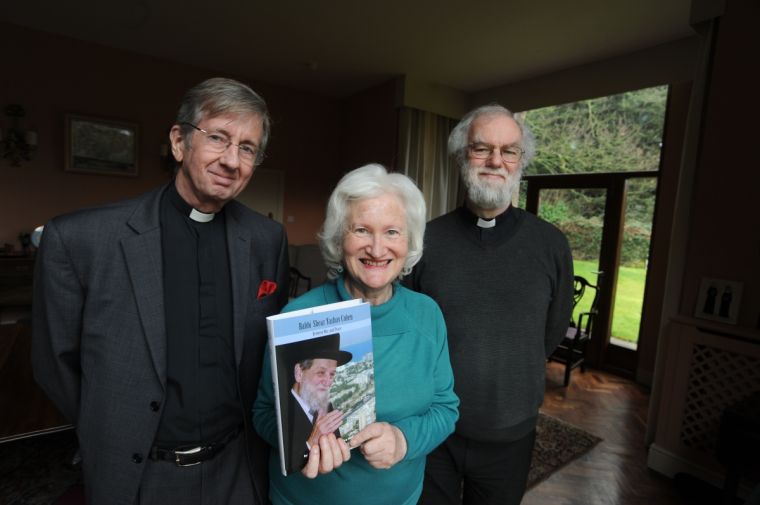Jews are under threat all over the world. But today on Purim, we make merry
Today Jews all over the world are preparing themselves for the celebrations starting this night after the reading of the Purim Megillah. It is the joyful month of Adar, the 13th to be exact, the Fast of Esther in the year 5778 in the Jewish calendar.
This Megillah scroll commemorates the biblical story of Queen Esther who married the Persian king, Ahasuerus, (possibly Xerxes) without at first revealing her identity, in order to save the Jewish people from genocide. The King's Prime Minister, Haman, was jealous of the Jews and wanted them eradicated – wiped out of history.
The reasons given by Haman for wanting to destroy the Jewish people were that they were scattered all over the huge Persian kingdom (stretching from India to Ethiopia), they did not obey the king's laws and they kept their own very peculiar and odd laws, traditions and customs.
In what is generally regarded in Jewish tradition as the classic piece of biblical anti-Semitic propaganda, Prime Minister Haman tells the King in Chapter 3, verse 8: 'There is one people scattered and distinctive among the peoples in all the provinces of your kingdom. And their laws, customs and traditions are different from every other people and the King's laws, customs and traditions they do not carry out. It is not in the King's interest, nor does it befit him, to allow things to carry on in this vein.'

The key phrase is 'laws, customs and traditions', which covers one word in Persian, which is 'dat'. This little word 'dat' entered the Hebrew language as a loan-word from Persian, generally translated – and very loosely – as 'religion'.
So now, when you wander the streets of Israel, you will often hear the word 'dati', which covers a multitude of ideas, thoughts, prayers and behaviours, but which was first heard rather late in the life of the biblical Jewish people, in diaspora Persia when they were about to experience an attempted genocide.
What exactly is 'dat'?
Last year, I was privileged to experience the book launch of my biography of the late Chief Rabbi of Haifa in the home of the Master of Magdalene College, Dr Rowan Williams.
Before the big event, which took place in the afternoon, Dr Williams showed me around his home. Everywhere he took me I experienced a feeling of 'dat'. 'Dat' was there in everyday utensils, some of which were obviously of both Welsh and Christian origin. Then there was the harp in the lounge and countless other examples of what can only be called to an outsider 'Welsh Christian feeling'.
So when you live dat you don't have to go on about it all the time. However, to an outsider like Haman, filled with jealousy, ambition and resentment, 'dat' wasn't religion – it was strange ideas, thoughts and behaviours that made Jewish people different. And difference spelled trouble. To keep the Kingdom together, what you needed was total conformity. And if the Jews didn't conform – the answer was to be annihilation.
The last time we saw this in our own fairly modern history was during the Stalinist purges. Hitler was different. Hitler didn't mind if Jews didn't conform. Anyone with one grandparent who might have been Jewish, even if they were now converts to Christianity, had to be put down, no matter what.
But it could be argued that Haman maybe was like Hitler after all. He knew that the Jews simply wouldn't be able to give up their own laws, customs and traditions, because these had been given them by G-d on Mount Sinai, and they were obliged to keep these Sinaitic laws even in diaspora and even under threat of death.
In the end, Queen Esther reveals that she is Jewish, thwarts Haman's plot and the Jews are saved. This is why Purim is the most joyful festival of the Jewish calendar, when people dress up for the day, enjoy a festive meal, hear the Megillah of Esther read twice (once tonight and once tomorrow morning) and often overdo the drink.
Recently, one of the most respected rabbinic leaders in the country, known affectionately as 'the Gateshead Rav', Rabbi Shraga Feivel Zimmerman, has stated that what the observant Jewish community regards as current government interference in religious education is 'possibly the most serious' issue facing Anglo-Jewry since our expulsion from England over 700 years ago in 1290.
His view (shared by many) is that we are 'in an emergency situation' and 'if it isn't addressed we simply won't be able to stay' in the country.
It is not often that rabbis in his position (and his view is shared by his colleagues in Greater Manchester and in London) speak out like this. But, it does seem to many of us that many government officials simply do not understand what religion means to Jewish people. It appears that they think in a very Protestant way that religion is faith and that people have to follow their own 'conscience'. But even this is a misnomer, based on differences in the medieval, renaissance and modern definitions of that word.
The observant Jewish community of this country is growing. There are probably 200 synagogues in my area alone and people are lucky to be spoiled for choice when it comes to Shabbat and festivals. I can just go over the road tonight and there are at least three synagogues from which I can choose to read the megillah.

However, it does seem to us that our religious education and religious way of life is being threatened by authorities who simply do not understand and, worse, do not seem to want to learn about our religion.
In every generation we celebrate the joyful festival of Purim not only to give thanks for our salvation at the time of Xerxes of Persia, but also as a reminder of the real threats we face – which change superficially with the centuries, but usually boil down to the same thing.
Are Jews a blessing or a curse for society? This is why we are supposed to get so drunk tonight and tomorrow that we do not know the difference between the phrases 'blessed be Mordechai' (Esther's uncle, who advised and helped her to save the Jewish people) or 'cursed is Haman', the villain of the piece who wanted to eradicate Judaism from the world.
At the moment we are unsure in an uncertain world, with huge changes afoot in this country. But, just as at the time of Queen Esther, Mordechai and the Jewish people of Persia, who gave us the word 'religion', we Jewish people have to be eternally vigilant and on our guard. And this is one reason why the joyous festival of Purim takes place every year exactly one month before Pesach, the story of our Exodus from Egypt from abject slavery into precious freedom.
Wishing everyone a Happy Purim!
Dr Irene Lancaster is a Jewish academic, author and translator who has established university courses on Jewish history, Jewish studies and the Hebrew Bible.











